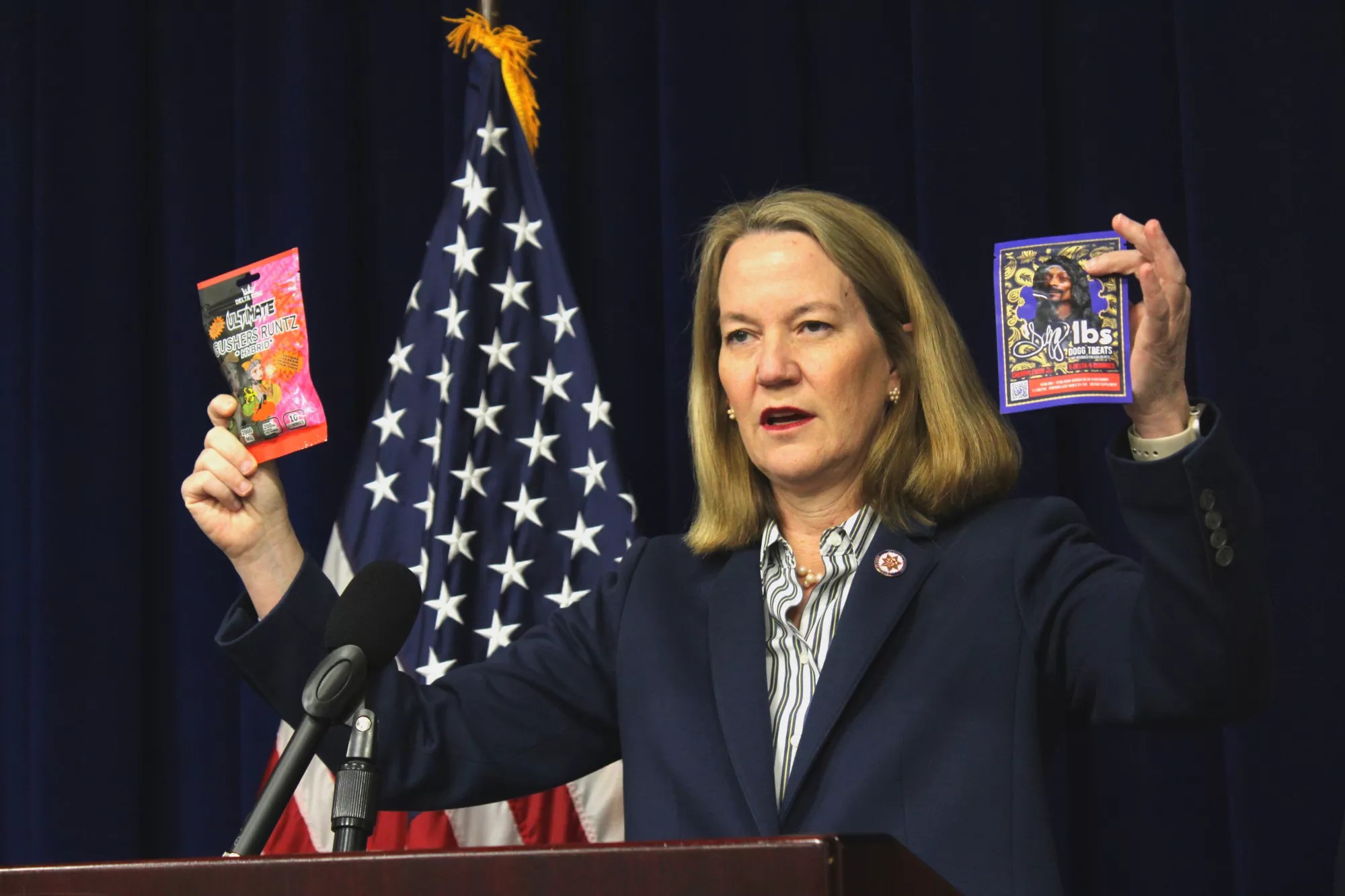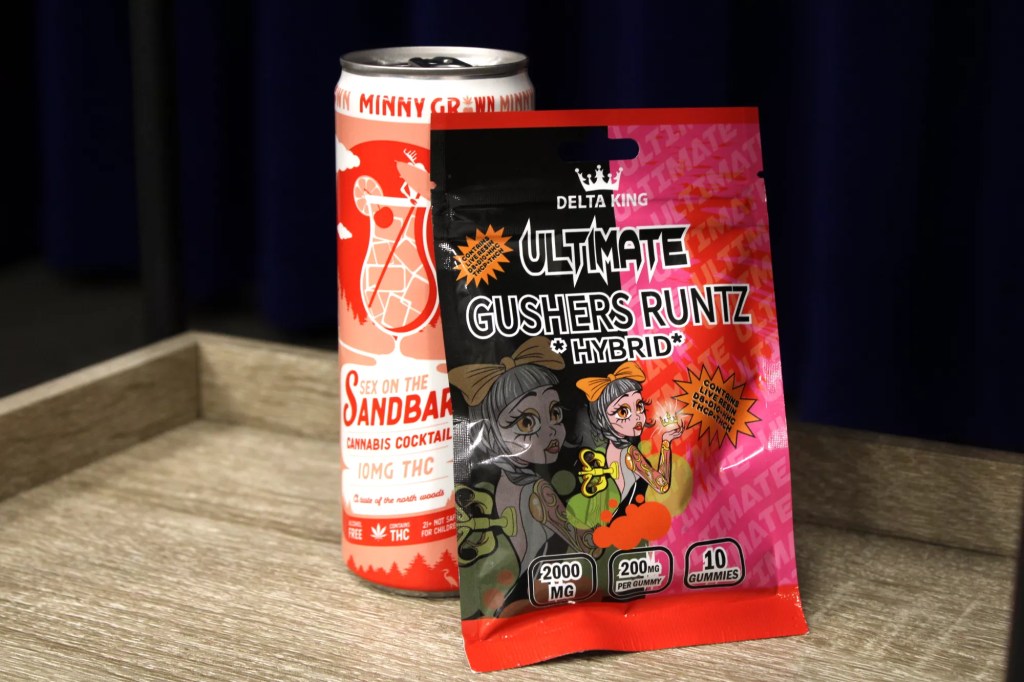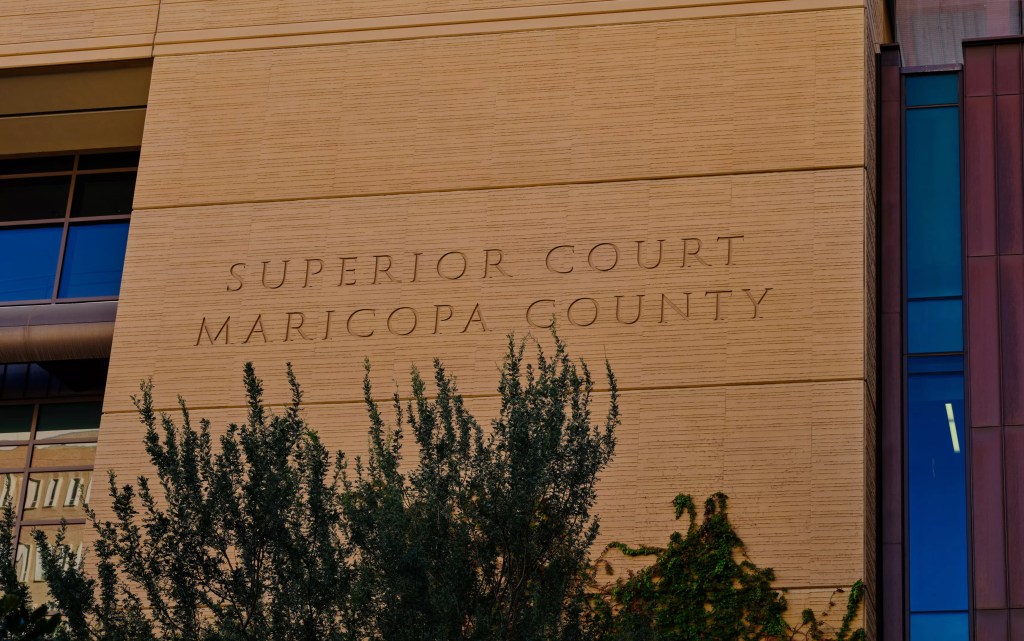
Morgan Fischer

Audio By Carbonatix
As her mother dealt with intense back pain, Prescott resident April grew wary of opioids. CBD products helped, but sometimes, when her mom’s symptoms are at their most agonizing, a small dose of THC — the active ingredient in marijuana — goes a long way.
“It is night and day when she gets it,” said April, who asked that her last name be withheld. “My mom doesn’t need a high dose of THC — she barely needs a dose. And that’s only when things get really bad, because we’re focused on maintaining a pain level, but it’ll get bad when the weather changes.”
Typically, April shops at a local mom-and-pop store that mainly sells CBD products, avoiding what she feels is the oppressive commercial environment of a dispensary. Her experience in a dispensary made her “very uncomfortable,” she said. “I didn’t feel like they knew what I was asking for.”
Luckily, the CBD and THC products she wanted were available outside of them — at least until recently. Since June, Arizona Attorney General Kris Mayes has cracked down on THC products sold outside of Arizona’s dispensaries, arguing that they are being sold illegally. That includes cannabis gummies, drinks and other products often found in smoke shops and at gas stations.
The Hemp Industry Trade Association sued, arguing that Mayes was misinterpreting state and federal law that exempted THC products derived from hemp from such stringent regulation. But in June, Maricopa County Superior Court Judge Randall Warner disagreed, denying HITA a preliminary injunction. Arizona’s 2018 Hemp Act may have legalized the manufacture and sale of “industrial hemp,” Warner wrote, but that term means the cannabis plant itself and not consumable products derived from it. Warner affirmed that finding in an August ruling, dismissing the case with prejudice.
HITA has lodged an appeal with the Arizona Court of Appeals, but until the case is resolved, hemp-derived THC products have disappeared from shelves, including at April’s local store. April is concerned that she might not be able to buy the products that help her mother. And the store, the cannabis wellness shop My Health Etc., now worries about going out of business.
“They stripped six different products out of our inventory, which were really helping people with microdosing THC,” said the store’s owner, Jay Grover. “It’s just about killed us. We are barely hanging on. It hasn’t put us out of business, but it’s real close and if this goes on much longer, I don’t know what we’ll do.”

Morgan Fischer
Legal or not?
Since 2018, hemp-derived THC products have enjoyed something of a de facto legality, leading to their proliferation in smoke shops and other stores.
That year, Congress legalized industrial hemp in the 2018 Farm Bill, defining it as parts of the cannabis plant with less than 0.3% delta-9 THC content. However, producers of hemp-based THC products figured out that they can refine cannabis with higher levels of less potent delta-8 THC to provide similar intoxicating effects as some marijuana products.
“The THC in these products is legal,” Grover said. “There’s not enough to get anybody high or addicted, or even make you hungry.”
In Arizona, marijuana products must be sold by licensed dispensaries, which are represented by the powerful Arizona Dispensary Association and regulated by the state health department. But until recently, hemp-based THC products have fallen outside that regulatory structure. Earlier this year, though, Mayes published a legal opinion that anything with a trace of THC sold outside dispensaries was illegal. Warner approved that reasoning in his ruling.
“Unregulated marijuana sales in smoke shops and other retailers put the health and safety of minors at risk,” said Mayes spokesperson Richie Taylor. “Attorney General Mayes must enforce the law as it is written — and the voter-approved law requires THC products to be sold in regulated dispensaries.”
Mayes is enforcing that ruling, Taylor said. Though she announced that her office would levy steep fines for illegal sales of cannabis gummies, cannabis drinks and other products, Taylor said no fines have yet been handed down. Instead, Glover said, the small businesses that sold such products have been scared into wiping them from their shelves.
HITA says that the crackdown has damaged an industry that the organization estimates does $699 million in annual business in Arizona.
“This estimate is based on projections from the roughly 850 smoke shops, vape stores, CBD stores, and wellness centers in the state,” said HITA executive director Sully Sullivan. “It does not include projected hemp product sales in breweries, restaurants, liquor stores, grocery stores, gas stations, convenience stores, festivals, or the nation’s largest big-box retailers.”

Tony Webster
Wary of dispensaries
Customers of My Health Etc. in Prescott are peeved.
Ashlee, a 65-year-old customer who also asked to withhold her last name, said she hasn’t been able to purchase gummies, which contain 2.5 milligrams of THC and 25 milligrams of CBD, from My Health Etc. since Mayes’ crackdown began. She uses them for sleep and back pain.
“My sleeping certainly hasn’t been as good as it was when I was taking that,” she said. “Here’s a product that helps with your arthritis and sleeping with no side effects, and they want to take it away. It’s like, what?”
Taylor noted that customers seeking those products could simply visit a dispensary, which is unambiguously licensed to sell them to anyone who is at least 21 years old. “Regulated dispensaries, including those selling medicinal cannabis products, are located throughout Arizona,” he wrote.
But some older citizens like Ashlee don’t feel comfortable going to a commercial dispensary, Glover said.
“Ninety percent of our clients are 45 years or older, and 90% of our clients are angry,” he said. “A lot of our clients have gone to a dispensary. We’ve had many clients come in and say, ‘Yeah, I went to the dispensary and somebody sold me a cookie.’ They eat a cookie or a half a cookie and they’re wiped out — they’re stoned for two or three days.”
Added Ashlee: “It’s so frustrating because we’ve been told, ‘Well, you gotta go to the dispensary. I’m not going to the dispensary — I don’t want to be a part of that. They’re just trying to get you stoned.”
As the legal battle continues, April said she has stocked up on the products that help her mother.
“This thing is very, very important to our family as a whole. This gave my mom a quality of life that she otherwise would not have,” she said. “It’s going to be a problem later on if we can’t get that anymore.”